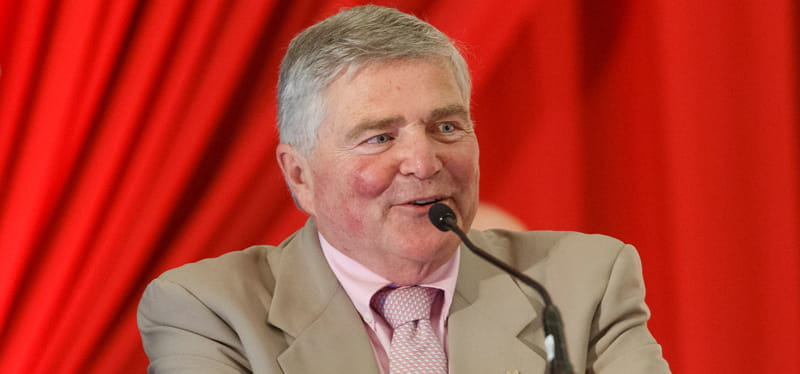After nearly dying, longtime volunteer advocates for science
By American Heart Association News

If Bernie Dennis wanted, he could brag about his distinguished career, including being vice president at the tech giant Oracle. But he’s way more interested in telling you about his family.
As he speaks to a reporter, his two granddaughters, ages 10 and 8, wait for him to return to play another card game of Crazy Eights.
“Moments like this, with my beautiful granddaughters, are moments I really appreciate and protect,” said Dennis, a heart attack survivor. “When you face the possibility of your own death, you have a whole new appreciation of life.”
Dennis’ hard-earned gratitude for life has inspired him to be a volunteer for the American Heart Association for more than two decades. A past chairman of the board of directors who continues to advise the organization, Dennis is the latest recipient of the AHA’s Morgan Stark Memorial Award, named for a highly respected philanthropist and financier who supported the nonprofit.
Before Stark died in 2015, he worked with Dennis on various AHA initiatives. “He was intense, inquisitive, confident and smart,” Dennis said, “and he was totally committed to doing whatever was asked to promote the AHA and heart health.”
You could say the same thing about 69-year-old Dennis. As a younger man, however, health was the last thing on his mind.
“I was a poster child for bad health: I smoked. I drank. I ate fast food, and I had a high-pressure job. My doctor told me ‘It isn’t a question of whether you’re going to have a heart attack, but when you’re going to have a heart attack,’” Dennis said.
“I said: ‘Thanks for the warning’ and I just ignored him. Because at that moment, I felt healthy, so I believed I’d always be healthy. I believed I was invincible.”
He found out otherwise the hard way. In 1995, Dennis suffered a heart attack, followed by two more heart attacks during a monthlong stay in the hospital. There he experienced a failed angioplasty, congestive heart failure and other life-threatening setbacks. Doctors saved his life by performing emergency quadruple bypass surgery.
Somehow, he survived.
“They used every bit of technology that had been created at that time to save me, and I came out the other end a changed man,” he said. “The first day I was home, I had a whole different perspective on how precious life is.”
In addition to quitting smoking and living a healthier lifestyle, Dennis began volunteering for the AHA. After raising money for his local Heart Walk in Rochester, New York, he became chairman of the Rochester division of the AHA and later served as chairman of the Founders Affiliate, national secretary-treasurer, and in other roles before becoming chairman of the board from 2013 to 2015.
Now retired, he continues to volunteer for the AHA. He’s chairman of the organization’s Corporate Relations Review Committee, and he serves on several other business and science committees.
As someone whose life was saved by medical advances, Dennis is a passionate cheerleader for the scientific research that the AHA supports.
“The pace of progress and the impact of change is incredible, and the AHA is a huge enabler of that,” he said. “As sophisticated as we are right now, in 100 years, people will look back at what we’re doing right now as chisels and stones … the way that we now look at what happened 100 years ago.”
But for all the innovations being made in medicine and health care, one of the most important things the AHA can do is inspire people to live healthier lives, Dennis said.
“We have to speak loudly to individuals about staying healthy. We have to find a way to touch them,” he said. “I know from my own experience that it’s easy to take for granted the fragileness of life, and I think the AHA has to make sure that we deliver a message that’s compelling so individuals take care of themselves.”
If you have questions or comments about this story, please email [email protected].





